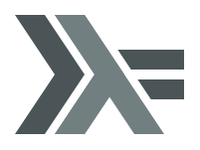
Haskell Symposium 2011
Tokyo, Japan22nd September, 2011

 |
Haskell Symposium 2011
Tokyo, Japan |
 |
| Submission Deadline <> Programme Committee <> Accepted Papers |
The ACM
SIGPLAN
Haskell Symposium 2011 will be
co-located with the
2011
International Conference on Functional Programming (ICFP),
in Tokyo, Japan.
The purpose of the Haskell Symposium is to discuss experiences with
Haskell and future developments for the language. The scope of the
symposium includes all aspects of the design, semantics, theory,
application, implementation, and teaching of Haskell.
Topics of interest include, but are not limited to:
Papers in the latter three categories need not necessarily report original research results; they may instead, for example, report practical experience that will be useful to others, reusable programming idioms, or elegant new ways of approaching a problem. The key criterion for such a paper is that it makes a contribution from which other Haskellers can benefit. It is not enough simply to describe a program!
8.55-10.00: Session 1 "Monads"
chair: Graham Hutton
8.55: Welcome
Koen Claessen (PC chair)
9.00: Extending monads with pattern matching
Tomas Petricek, Alan Mycroft and Don Syme
9.30: Bringing Back Monad Comprehensions
George Giorgidze, Torsten Grust, Nils Schweinsberg and Jeroen Weijers
10.00-10.30: Coffee Break
10.30-12.00: Session 2 "Libraries"
chair: John Launchbury
10.30: Termination combinators forever
Max Bolingbroke, Simon Peyton Jones and Dimitrios Vytiniotis
11.00: Hobbits for Haskell: A Library for Higher-Order Encodings in Functional Programming Languages
Edwin Westbrook, Nicolas Frisby and Paul Brauner
11.30: A library writer's guide to shortcut fusion
Thomas Harper
12.00-13.30: Lunch
13.30-15.00: Session 3 "Parallelism"
chair: Sam Lindley
13.30: Efficient Parallel Stencil Convolution in Haskell
Ben Lippmeier and Gabriele Keller
14.00: A monad for deterministic parallelism
Simon Marlow, Ryan Newton and Simon Peyton Jones
14.30: Prettier Concurrency: Purely functional concurrent revisions
Daan Leijen, Sebastian Burckhardt and Manuel Fahndrich
15.00-15.30: Coffee Break
15.30-17.00: Session 4 "Embedded Languages"
chair: Neil Mitchell
15.30: Flexible Dynamic Information Flow Control in Haskell
Deian Stefan, Alejandro Russo, John Mitchell and David Mazieres
16.00: Embedded parser generators
Jonas Duregård and Patrik Jansson
16.30: Haskell for the cloud
Jeff Epstein, Andrew Black and Simon Peyton Jones
17.00-17.10: Short Break
17.10-17.45: Session 5 "Future of Haskell"
chair: Janis Voigtländer
Submitted papers should be in portable document format (PDF), formatted using the ACM SIGPLAN style guidelines (http://www.acm.org/sigs/sigplan/authorInformation.htm). The text should be in a 9pt font in two columns; the length is restricted to 12 pages, except for Teaching, Applications, and Practice and Experience" papers, which are restricted to 6 pages. Each submission must adhere to SIGPLAN's republication policy, as explained on the web. Accepted papers will be published by the ACM and will appear in the ACM Digital Library.
In addition, we solicit proposals for system demonstrations, based on running (perhaps prototype) software rather than necessarily on novel research results. Proposals are limited to 2-page abstracts, in the same ACM format as papers, and should explain why a demonstration would be of interest to the Haskell community. They will be assessed for relevance by the PC; accepted proposals will be published on the Symposium website, but not formally published in the proceedings.
Submission of papers is organized via Easychair:
(closed)